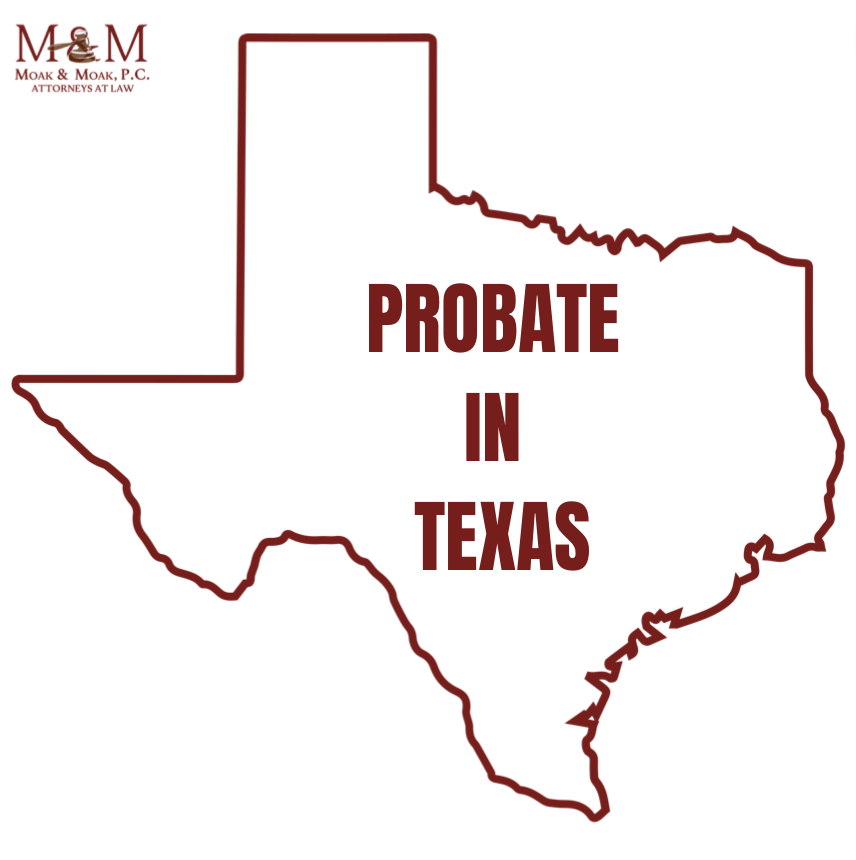I recently corresponded with my good friend, Matt Crider, who practices law in California. The system of probate in California is vastly different that here in Texas. In California, transferring a person’s assets through a Will can take 2 years and the court sets the fee. Probate is simply the administration of a deceased person’s property. However, because probate is misunderstood, many take advantage of families facing probate. Estate administration through probate in Texas is the management and settlement of a deceased person’s estate by a personal representative approved by the court. Estate administration does not require a Will. Probate can be the formal process of administering a person’s estate when they had a Will, but there are other methods I will discuss in this column.
Probate may not be necessary when the decedent’s estate is so small that no action is necessary to distribute the property to the beneficiaries or heirs. However, probate is required in most other circumstances.
Estate administration involves the following steps:
- Collection of the decedent’s assets;
- Payment of debts and claims against the estate;
- Payment of estate taxes, if any;
- Determination of heirs, if the decedent died without a Will; and
- Distribution of the remainder of the estate to those entitled to it.
In Texas, there are several different methods of administering an estate, some of the more common of which are discussed below.
Standard Probate of Wills:
Whether you have a handwritten or typewritten Will, its validity must be proved in court. This procedure is known as probate, and it generally must take place within four years after death.
A Will that is not proved in court is denied probate. In this event, the decedent’s property passes to his or her heirs as if he or she died without a Will. Again, this further emphasizes how important it is to execute a Will which meets all legal requirements so that property will pass as the decedent wished. After proving the validity of a Will, the next step in the probate process is the administration of the estate.
Independent Administration:
Texas is one of the states that provides for independent administration – administration free of court supervision. This means that after an independent executor or administrator is approved and an inventory of estate assets is filed with the court, the executor or administrator can simply take care of the administration of the estate without any further court involvement or supervision. The independent executor or administrator is free to settle with creditors, set aside the homestead and other exempt property, manage the property of the estate, sell assets for payment of debts or taxes, and distribute the remaining estate to those entitled to it. Thus, independent administration avoids the costs and delays associated with a court-supervised estate administration in which the executor or administrator must seek court approval before performing any of these acts.
Muniment of Title:
If there is no need for the appointment of an executor or administrator and the only reason for probating a Will is to clear title to property, a Will can be admitted to probate as a muniment of title. Under this procedure, there is no executor or administrator appointed. It is a somewhat more simplified method of probating a will than the traditional formal administration. It is generally used only when there are no debts of the estate to be paid and no other actions that require the appointment of an executor or administrator.
The vast majority of estates in Texas are handled through Last Will and Testaments because of the ease of using the independent administration or muniment of title pathways. This saves the family time and money in most cases.
Small Estate Affidavit:
If the decedent died intestate, without a Will, then his estate may be resolved with a small estate affidavit. If the value of the estate, excluding the homestead, exempt personal property, and nonprobate assets, does not exceed $50,000.00, no formal administration is necessary if the heirs file an affidavit with the court showing that they are entitled to receive the property of the estate.
The small estate affidavit is not necessarily limited to small estates, and may be a useful alternative to a formal administration in certain estates where, for example, the residence and nonprobate assets comprise the majority of the estate and the remaining assets are valued at less than $50,000.00. Check with your estate planning or probate attorney to see if this is appropriate in your circumstances.
Informal Family Settlements:
Informal family settlements are permissible where the estate is small and consists only of personal property, such as personal effects and household furnishings, but generally not where the estate includes real estate, bank accounts, stocks, and bonds. If a motor vehicle is involved, a new certificate of title may be applied for by filing an affidavit of heirship with the Texas Department of Public Safety.
As always, check with your attorney to decide which method of estate administration is right in your particular circumstance. It could save you time and money.

